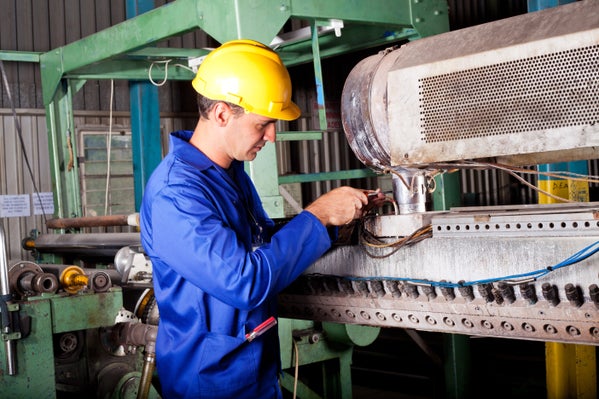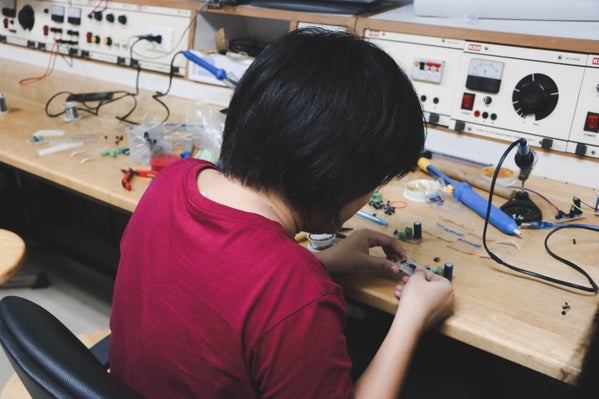At A Glance: Electrical and Electronics Repairers, Commercial and Industrial Equipment
Electrical and electronics repairers fix, test, adjust, and install commercial and industrial electronic and electrical equipment. Their job requires them to work with equipment operators to understand any problems and make the appropriate repairs. They work in settings which require them to use cranes or lifts to access equipment. They also perform preventative and routine maintenance to ensure equipment is functioning at its peak performance.
To become an electrical and electronics repairer of commercial and industry equipment requires at least a certificate and one to two years of on-the-job training. Some employers will require an associate's degree or apprenticeship. Electrical and electronics repairers earn approximately $27.94 an hour, and the need for them grows at an average rate of 2% to 4% per year.
Entry Level Requirements
Certificate
To become an electrical and electronics repairer requires at least a post-secondary certificate. Many positions require an associate's degree.

In the last 12 months
2,305
employers have posted jobs for Maintenance personnel in the last year.
How much can I make?
Hourly Rate: $17 - $40/HR.
Job Details: Electrical and Electronics Repairers, Commercial and Industrial Equipment

Commonly Performed Tasks
There are many tasks that electrical and electronics repairers perform regularly. Their role is crucial to the overall function and performance of a plant or manufacturer. They not only repair malfunctioning equipment. They also install new equipment and perform preventative maintenance to keep machines in operation longer.
- Test faulty equipment to diagnose malfunctions using test equipment, software, or knowledge
- Study blueprints, schematics, manuals, or other specifications to determine installation procedures
- Repair or adjust equipment, replacing worn parts like seals in watertight electrical equipment
- Maintain equipment logs that record performance problems, repairs, calibrations, or tests
- Inspect components of industrial equipment for accurate assembly and installation or for defects
Required Job Skills
Electrical and electronics repairers require specific skills to do their jobs effectively. They must be able to monitor operations for effectiveness, conduct quality control analyses, and troubleshoot and repair equipment. To do this, they must perform their work with attention to detail and think critically to solve problems.
- Knowledge of materials, processes, and systems
- Physical strength and dexterity
- Knowledge of machines, tools, and materials
- Identify, analyze, and solve complex problems
- Comprehend complex informational text and visuals
Education & Training Information
Programs and Opportunities
Stark State College
Program: Electrical Maintenance Technology
Certification: Associate's Degree
Length: 2 Years
Community College of Allegheny County - West Hills Center
Program: Electrical Distribution Technology
Certification: Certificate
Length: 2 Years
Community College of Allegheny County - South Campus
Program: Electronics Basic
Certification: Certificate
Length: 1 Year
Pennsylvania College of Technology
Program: Electromechanical Maintenance Technology
Certification: Associate's Degree
Length: 2 Years
